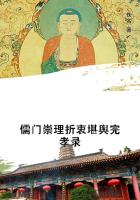The same thing might have been said of fully half the peerage. Adams never knew even the names of half the rest; he never exchanged ten words with any member of the royal family; he never knew any one in those years who showed interest in any member of the royal family, or who would have given five shillings for the opinion of any royal person on any subject; or cared to enter any royal or noble presence, unless the house was made attractive by as much social effort as would have been necessary in other countries where no rank existed. No doubt, as one of a swarm, young Adams slightly knew various gilded youth who frequented balls and led such dancing as was most in vogue, but they seemed to set no value on rank; their anxiety was only to know where to find the best partners before midnight, and the best supper after midnight. To the American, as to Arthur Pendennis or Barnes Newcome, the value of social position and knowledge was evident enough; he valued it at rather more than it was worth to him; but it was a shadowy thing which seemed to vary with every street corner; a thing which had shifting standards, and which no one could catch outright. The half-dozen leaders and beauties of his time, with great names and of the utmost fashion, made some of the poorest marriages, and the least showy careers.
Tired of looking on at society from the outside, Adams grew to loathe the sight of his Court dress; to groan at every announcement of a Court ball; and to dread every invitation to a formal dinner. The greatest social event gave not half the pleasure that one could buy for ten shillings at the opera when Patti sang Cherubino or Gretchen, and not a fourth of the education. Yet this was not the opinion of the best judges. Lothrop Motley, who stood among the very best, said to him early in his apprenticeship that the London dinner and the English country house were the perfection of human society. The young man meditated over it, uncertain of its meaning.
Motley could not have thought the dinner itself perfect, since there was not then -- outside of a few bankers or foreigners -- a good cook or a good table in London, and nine out of ten of the dinners that Motley ate came from Gunter's, and all were alike. Every one, especially in young society, complained bitterly that Englishmen did not know a good dinner when they ate it, and could not order one if they were given carte blanche. Henry Adams was not a judge, and knew no more than they, but he heard the complaints, and he could not think that Motley meant to praise the English cuisine.
Equally little could Motley have meant that dinners were good to look at. Nothing could be worse than the toilettes; nothing less artistic than the appearance of the company. One's eyes might be dazzled by family diamonds, but, if an American woman were present, she was sure to make comments about the way the jewels were worn. If there was a well-dressed lady at table, she was either an American or "fast." She attracted as much notice as though she were on the stage. No one could possibly admire an English dinner-table.
Least of all did Motley mean that the taste or the manners were perfect.
The manners of English society were notorious, and the taste was worse.
Without exception every American woman rose in rebellion against English manners. In fact, the charm of London which made most impression on Americans was the violence of its contrasts; the extreme badness of the worst, ****** background for the distinction, refinement, or wit of a few, just as the extreme beauty of a few superb women was more effective against the plainness of the crowd. The result was mediæval, and amusing; sometimes coarse to a degree that might have startled a roustabout, and sometimes courteous and considerate to a degree that suggested King Arthur's Round Table; but this artistic contrast was surely not the perfection that Motley had in his mind. He meant something scholarly, worldly, and modern; he was thinking of his own tastes.
Probably he meant that, in his favorite houses, the tone was easy, the talk was good, and the standard of scholarship was high. Even there he would have been forced to qualify his adjectives. No German would have admitted that English scholarship was high, or that it was scholarship at all, or that any wish for scholarship existed in England. Nothing that seemed to smell of the shop or of the lecture-room was wanted. One might as well have talked of Renan's Christ at the table of the Bishop of London, as talk of German philology at the table of an Oxford don. Society, if a small literary class could be called society, wanted to be amused in its old way. Sydney Smith, who had amused, was dead; so was Macaulay, who instructed if he did not amuse; Thackeray died at Christmas, 1863; Dickens never felt at home, and seldom appeared, in society; Bulwer Lytton was not sprightly; Tennyson detested strangers; Carlyle was mostly detested by them; Darwin never came to town; the men of whom Motley must have been thinking were such as he might meet at Lord Houghton's breakfasts: Grote, Jowett, Milman, or Froude; Browning, Matthew Arnold, or Swinburne; Bishop Wilberforce, Venables, or Hayward; or perhaps Gladstone, Robert Lowe, or Lord Granville. A relatively small class, commonly isolated, suppressed, and lost at the usual London dinner, such society as this was fairly familiar even to a private secretary, but to the literary American it might well seem perfection since he could find nothing of the sort in America. Within the narrow limits of this class, the American Legation was fairly at home; possibly a score of houses, all liberal, and all literary, but perfect only in the eyes of a Harvard College historian. They could teach little worth learning, for their tastes were antiquated and their knowledge was ignorance to the next generation. What was altogether fatal for future purposes, they were only English.















